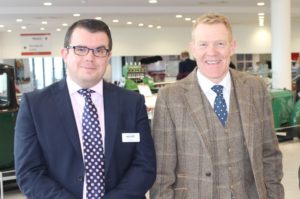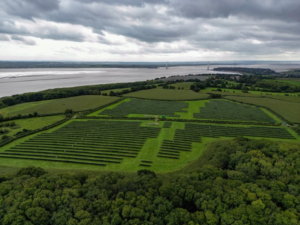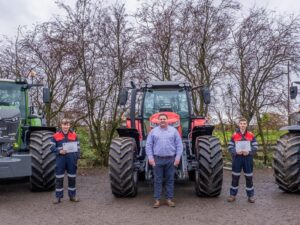
Farmers are being told to prepare for an uncertain future amid changing consumer trends, Brexit, and reducing support payments. But how can they prepare for the unknown?
According to Neil Cox, director of rural services at accountant Old Mill, the key is adopt a business-like approach to the farm and get an understanding of current and future financial needs before identifying ways to meet them.
Speaking at a recent seminar with Savills and Lloyds Bank, Mr Cox said it was too easy to focus on the day job and avoid the more challenging questions around future plans. “But you can’t afford to put your head in the sand – you’ve got to have your finger on the pulse and know how your business is performing.”
Mr Cox recommended that farmers work out what their break-even point is, and what they need to draw from the business to cover debt and living expenses. Working on known facts and educated predictions, they can then create future budgets and cash flow forecasts. “If the numbers don’t stack up, look at what you can do to change them. Often it’s about small steps and marginal gains – and don’t forget to build up a cash buffer in good times to see you through the downturns.”
Adrian Matthews, director of food and farming at Savills, told delegates to consider changing consumer demands, so they could better predict market opportunities. Key trends to watch out for include declining dairy and meat consumption, and a move to online shopping, offering potential for more direct sales, for example.
In the US, Semex predicts that the average dairy herd size will be 600 cows by 2027, with 60-75% of cows in herds of over 1,000 head. “We are likely to see that trend here, too,” said Mr Matthews. Top farmers will likely make greater use of robots and data analysis to boost efficiencies, but there will also be opportunities at the opposite end of the scale. “We might see small-scale, high value crops on just one field or grown indoors in a redundant potato store.”
The key is to foresee such challenges and opportunities, and adapt to meet them. For example, five smaller farmers may choose to form a joint venture, creating one larger business with associated buying and marketing power. “They would have access to capital, could share labour, and each specialise in one part of the business, like heifer rearing or forage management,” said Mr Matthews. “Although we’re seeing scale increasing it could be about bringing businesses together.”
Case study
Adam Henson, BBC Countryfile presenter and mixed farmer in the Cotswolds, has made big changes to his business in recent years, and reckons taking professional advice is extremely valuable. “Consultants, accountants, land agents and bank managers have huge networks and experience to draw on,” he said. “We need to make better use of that.”
Seeking advice and co-operating with other farmers has enabled Mr Henson to grow his farmed area to about 5,000 acres, combining a mixture of tenanted, contracted and contract management agreements. He has a 50:50 share alongside business partner Duncan Andrews, and runs variable rate precision machinery to maximise efficiencies.
“It works brilliantly. Duncan has a vested interest in the business, and complimentary skills – before he came in I was a busy idiot doing everything badly,” said Mr Henson. “Now, we’re spreading our overheads over a bigger acreage, and if wheat prices fall we still get an income from the contracting.”
Mr Henson adds value to his produce wherever possible, sending his oilseed rape for cold pressing nearby and Maris Otter barley for beer. All his land is in environmental stewardship schemes, and he recently negotiated a 20-year Farm Business Tenancy under which his landlord agreed to invest in new farm buildings. “We have made the buildings very versatile so we can adapt and change,” he explained. “It’s about taking a helicopter view of your farm and understanding your resources.”
As commodity wheat is unlikely to be profitable on the farm without the Basic Payment Scheme, Mr Henson has invested in his Cotswold Farm Park to offer glamping and a café / bar, to make it a bigger tourist destination. He also offers horse rides around the farm and is considering running a Tough Mudder event. “It’s just about adding value to the wider estate so that I can carry on farming.”
- For more information contact Neil Cox on 01749 335076 or visit www.oldmillgroup.co.uk.




